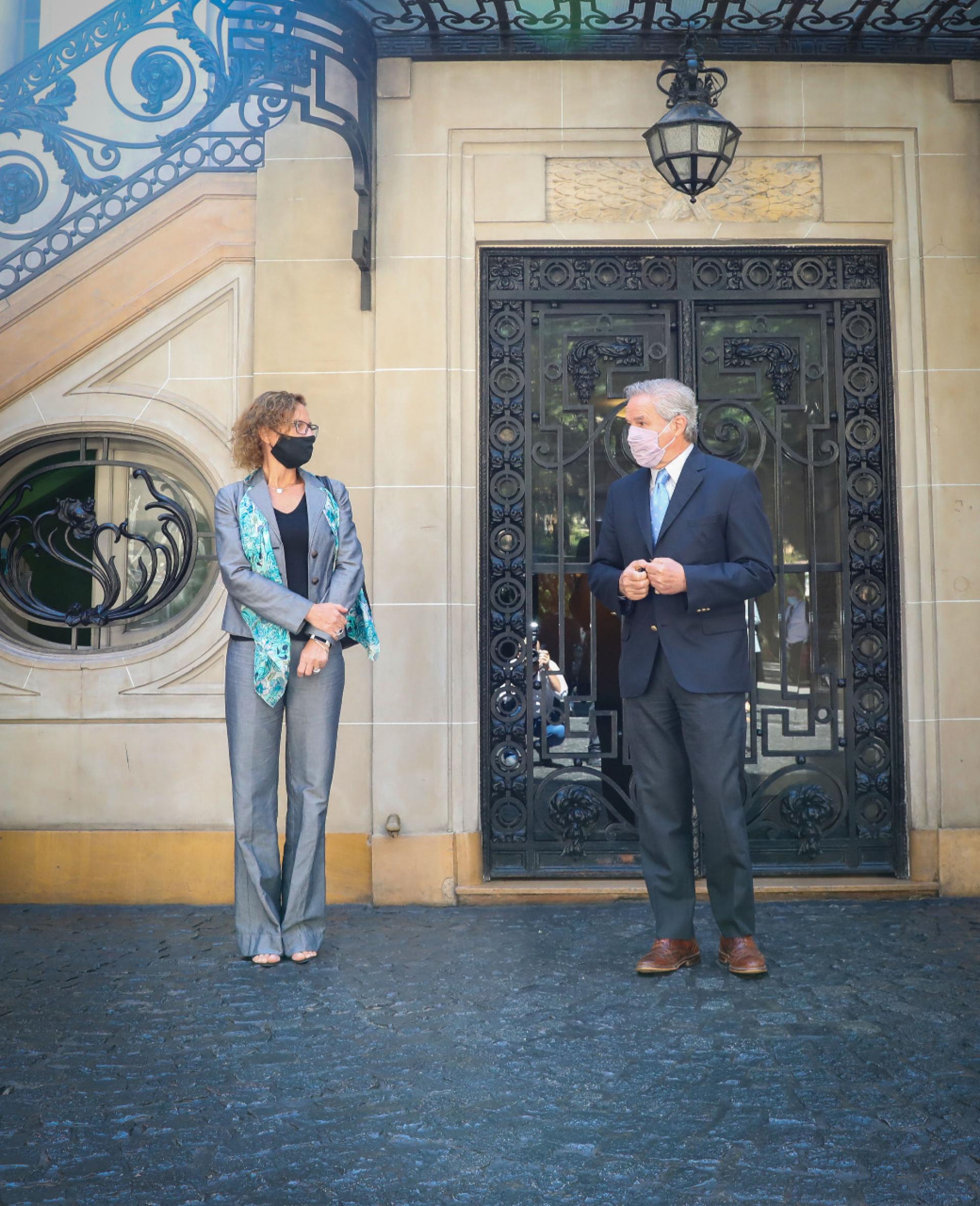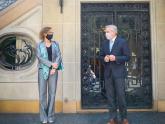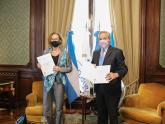Foreign Minister Felipe Solá and UNICEF’s representative in Argentina, Luisa Brumana, met today to formally present the cooperation programme for the period 2021-2025.
The Country Programme was developed based on the country’s priorities with regard to childhood and adolescence for the next five years. It was the result of a broadly participatory process that involved the Foreign Ministry, the Ministries of Economy; Social Development; Health; Environment and Sustainable Development; Justice; Science, Technology and Innovation; Education; Interior; Labour; Territorial Development and Habitat; Public Works; other public bodies such as the National Secretariat for Children, Adolescents and Family; the Social Security Administration (ANSES); the National Council for the Coordination of Social Policies; communications regulator ENACOM; the Office of Statistics and Censuses (INDEC); the Federal Agency for Disability Issues; the Secretariat for Equality; and the Ombudsperson’s Office for Children and Adolescents, as well as actors of the civil society, the private sector and academia.
Solá stated that the Programme “places an emphasis on matters of high importance to the Federal Government, such as greater social equality, the reduction of the gender gap, and the mainstreaming of human rights and environmental sustainibility” and highlighted the importance of these goals “also being guiding principles for cooperation in our country with regard to children and adolescents.”
The Foreign Minister, who was joined by the Chief of the Private Office of the Ministry of Foreign Affairs, Guillermo Justo Chaves, highlighted the decision of the Government to increase public investment in children during the COVID-19 pandemic, through policies such as the Emergency Family Income, the Alimentar food support card, the Seguimos Educando education platform programme, and the inclusion of more than 700,000 children and adolescents in the Universal Child Allowance programme. Solá acknowledged the work done by UNICEF in partnership with the Federal Government and civil society and stated that “the most affluent societies are not those that have the most natural resources, but those that have developed on the basis of scientific and technological progress, underpinned by equality. To achieve this kind of development, we must guarantee full enjoyment of the rights to education, health care, housing and proper nutrition for all our children. Otherwise, all effort becomes futile.”
Brumana in turn explained that “every five years, the UNICEF team invites Argentine society to think together about the main challenges that we need to overcome so that children in Argentina can have a fulfilled childhood and adolescence, can all of their rights and can realize their full potential.” She added that this Country Programme “is the result of a consultative process, which included Government agencies; civil society organizations and opinion leaders throughout 2020.”
“The UNICEF cooperation programme is part of the United Nations Cooperation Framework for the Sustainable Development of Argentina 2021-2025. The programme is in line with the country’s work to achieve the goals of the 2030 Agenda, and it will contribute to the national mandate to guarantee the full, effective and permanent exercise and enjoyment of children and adolescents’ rights, assuring their full enforceability and the observance of the principle of the best interests of the child,” stated Roberto Valent, Resident Coordinator of the UN System in Argentina who was also present at the meeting.
In accordance with the United Nations procedures, the Country Programme for Argentina will be published on the website of UNICEF’s Executive Board for revision and comments of the Member States during March and April. Then, the Programme will be oficially translated and submitted for approval at the session of the Executive Board, to take place between the first and fourth of July.
The presentation event was also attended by the Director of International Cooperation of the Foreign Ministry, Juan Ignacio Roccatagliata, and the Deputy Representative of UNICEF Argentina, Olga Isaza.



